
Focus on fitness, not aesthetics
Improving performance, strength, speed, flexibility and/or consistency is more effective than constantly weighing yourself or staring at yourself in the mirror, says Meghan Kennihan, a fitness trainer in Chicago. “Take the emphasis off the aesthetic results, and put it on becoming the best athlete you can be. The body and mind will change so much faster and the aesthetic gains will follow!”
(Related: Here are strength-training mistakes you’re probably making.)
![IMG_8694 (1)[1]](https://www.besthealthmag.ca/wp-content/uploads/2020/03/IMG_8694-11-e1582818951363.jpg?resize=700%2C466)
Focus on the process, not the results
You should focus on the process and not the results of your fitness journey. “Fitness is about what you do every day,” says Jess Doss, head trainer at OrangeTheory Fitness in Nashville. “It’s not about what you do once in a while or how you can make yourself look good for one particular event. Cultivate good habits,” Doss advises. “Watch your habits, not your weight. The small changes you make to your habits every single day are what add up to big changes over time.”
(Check out the healthy habits you should adopt now, according to doctors.)

Exercise your patience muscle
Diana Mitrea, a certified personal and group fitness trainer in New York City, tells clients to focus on the idea that you’re making lifestyle changes—and they don’t happen overnight. Rather than having your eye on some future result, look for small victories along the way. Celebrate the lifestyle choices you make, such as eating healthy, getting in a great workout, or being able to do a push up for the first time (and then being able to do two).
(Here are the signs you’re out of shape.)

Be wary of long-term goals
Constantly thinking about whether you’re achieving some distant goal may lead to frustration, suggests professional ballet dancer and the creator of Lazy Dancer Tips, Alessia Lugoboni. Developing your healthiest, fittest body is a process. “It takes time, everyone is different. Take one day at the time and build up from it,” Lugoboni advises.
(Here’s how to change the way you think to achieve your fitness goals.)

Interim goals may help
If you feel you have to set some kind of concrete goal, then make it an interim one, suggests Robin Gillespie, a National Academy of Sports Medicine (NASM) corrective exercise specialist and pilates instructor in Philadelphia. “As a longtime fitness professional, I find that when people set a reasonable, interim goal, they will do their best to achieve it. For example, I challenged a client to train and run for a 5K in eight weeks with me. We crossed the finish line together five pounds lighter and 50 push-ups stronger!”
(Check out this trick for achieving your running goals.)
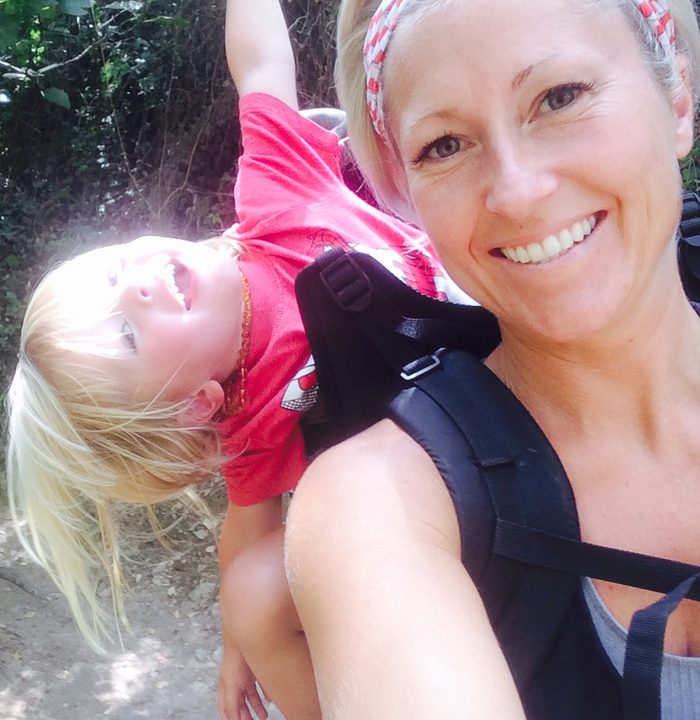
Create a vision board
If you’re a visual sort of person, then a vision board can be very helpful to keep you on track, suggests Reaghan Hayden, American Counsel of Exercise-certified group fitness instructor, personal trainer, and owner/creator of Fit Evolution Steel Strong in Niceville, Florida. “Use pictures of your long-term fitness goals, put them in a place you see daily, and subconsciously, the vision will soak in over time.”

Find your jam
It’s all about finding your workout jam. (Here’s why music is so important for your workout.) “Make sure it speaks to you. If your workout doesn’t excite you and keep you coming back for more, then try something else! A workout shouldn’t be torture. It should be sustainable, effective, and fun!” suggest Erin Moone, and Dionne Del Carlo, co-founders of StarCycle, a franchise of indoor cycling studios.
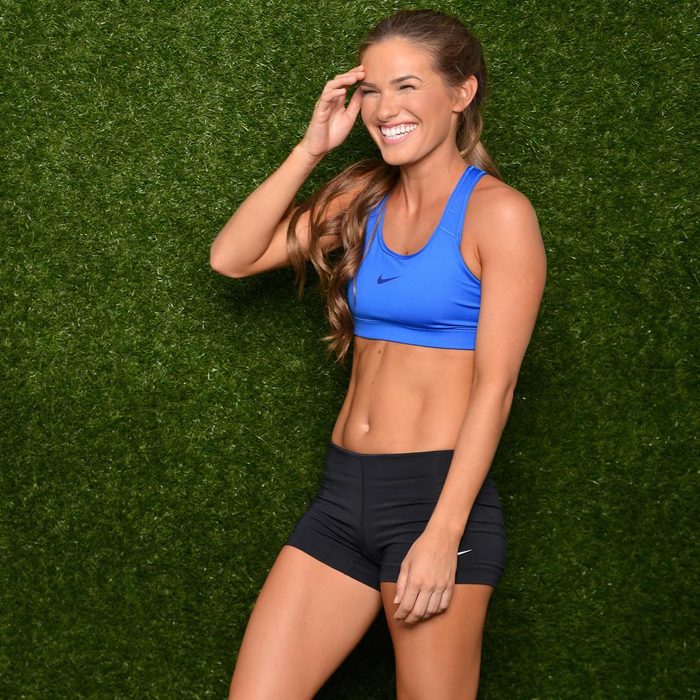
Avoid boredom
“Find an activity that gets your heart rate up and keeps you active. Whatever you do, you’re more likely to stick with it if it’s something you enjoy,” says Los Angeles-based fitness expert and creator of the PreGame Fit fitness and lifestyle program, Dempsey Marks. “You don’t have to be [glued] to the gym or the treadmill to get fit,” she advises.

When in doubt, walk it out
Walk every day. “It can be as little as 30 minutes. Not only does this up your step count, get movement into your body, but it gets you outside with your thoughts. It’s good for your overall mood, energy, and stress levels,” says Las Vegas-based fitness trainer Danielle Natoni.
(Here’s how to get more steps in without even trying.)

Don’t forget inner fitness
Be kind to yourself, advises Marks. “Putting too much pressure on yourself can create additional stress which can lead to overeating, increase in the stress hormone cortisol, and a multitude of other unhealthy effects.” In fact, stress can make you gain weight, science suggests.
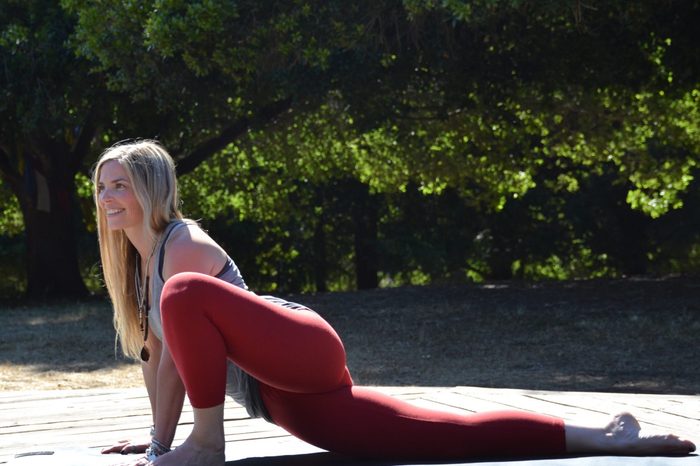
Stay in touch with how you’re feeling
Take notes on your workouts. “Keep writing notes about what works and what doesn’t. You won’t keep going to classes you don’t enjoy or keep doing workouts that are a long commute away. So take note of things that are working and things that aren’t so that you can make changes that will stick,” says Janis Isaman, fitness professional and owner of the training studio My Body Couture, in Calgary, Alberta, Canada.
(Here’s the best workout for your age.)
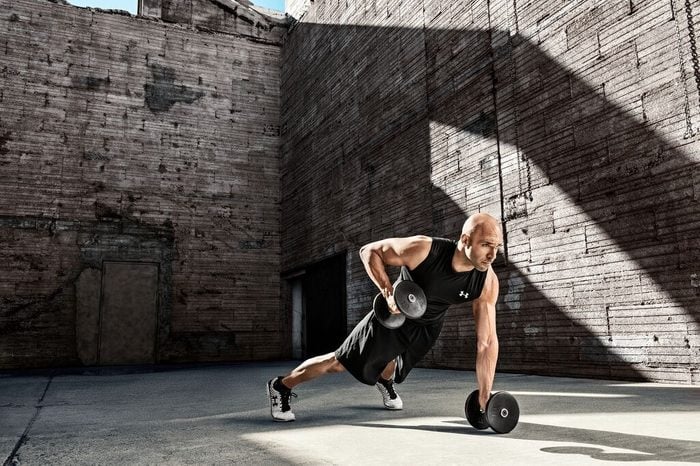
Buddy up
A trainer is ideal. But, another way to keep yourself accountable is to enlist a buddy. “A workout partner or even letting your Facebook friends knowing you signed up for a 10k will keep you going even when motivation may be lacking,” says Ramsey Bergeron, NASM-certified personal trainer, 8-time Ironman, and an owner of Bergeron Personal Training in Scottsdale.
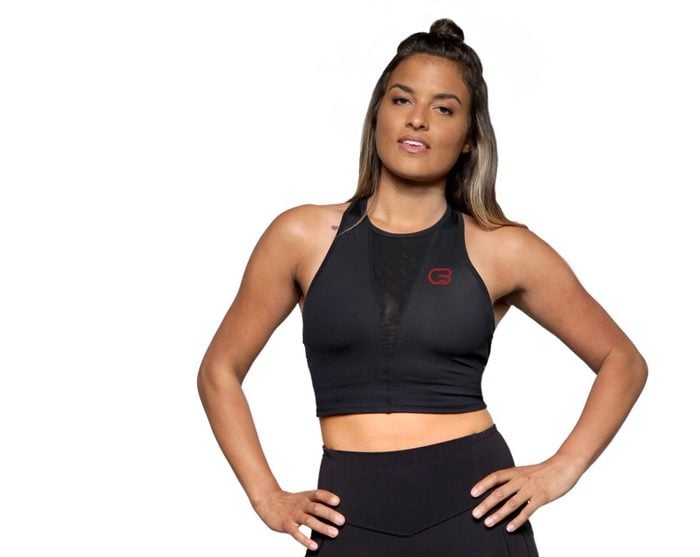
Change it up
“Sometimes a routine becomes a rut. Get out of a rut by trying new things. If you are cycling five times a week, try integrating a day of strength training. If you are lifting heavy weights every day, mix it up with some yoga. Do what serves you and never settle!” says Tori Ross, lead instructor at CycleBar in Nashville. “I encourage people to mix up their fitness routine to help stay in shape.”
(And here’s what to do if your workout wardrobe is in a style rut.)
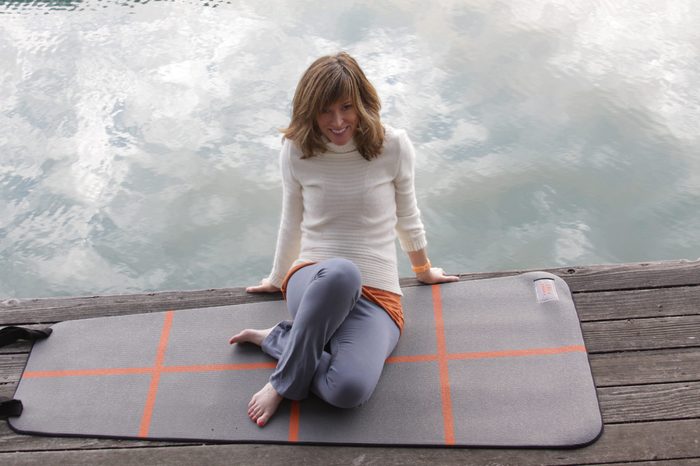
Don’t forget: You are what you eat
To get in shape, what you eat is just as important as exercise. “Eating is everything. Do your workout, and enjoy it, but without a healthy diet, don’t expect to see changes,” says Anne E. Appleby, founder and CEO of YogaForce.
(Here’s how to clean up your diet and feel good.)

Stay hydrated
Stay hydrated: Hydration is often confused with hunger, and you can be dehydrated without even knowing it, points out Simone Carvalletti, a personal trainer at W South Beach. Keep a two-liter bottle next to you, and sip through it during the day. If you’re having evening drinks always get some water as a side order. Our body is 60 percent water, so keep it hydrated, you will definitely feel better for it.”

Don’t get hung up on the scale
Mind what you eat, but don’t rely on the scale. “Weighing yourself on the scale is like checking your bank account daily to see if wealth has magically appeared,” says Daniel Nyiri, CEO of 4U Fitness and author of Fitbiz: Secrets of a Seven-Figure Gym. “Most likely it will have a negative effect on you rather than a positive one. Not to mention, weight consistently fluctuates depending on what time of day you hop on the scale, how much water you had the day before, or how much sodium was in your meals on one day versus another. If you are a woman it is even more variable due to hormones and more.” Instead, Nyiri recommends weighing yourself once a month at the same time of day.
(Learn why celebs have ditched the scale.)
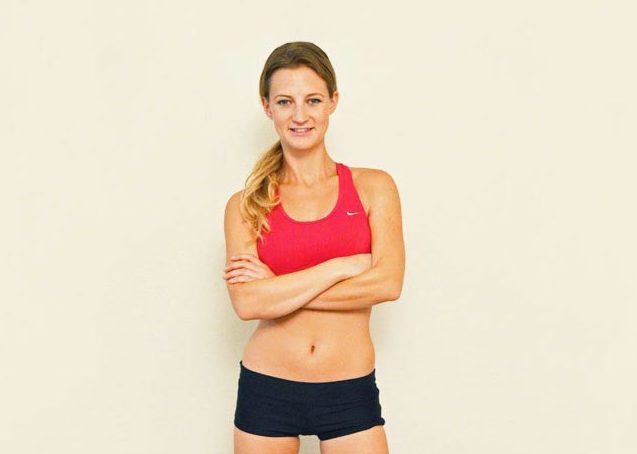
Every movement counts
The key is to stay active and not sedentary. “Just get moving, even if it’s at home,” suggests boot camp instructor and certified personal trainer, Kelly Borowiec, founder of Keebs Fitness. “Schedule short periods of time for getting back into exercise. If you can’t bring yourself to go to the gym, try using workout videos or online fitness programs.”
(Here are the stretches experts recommend.)
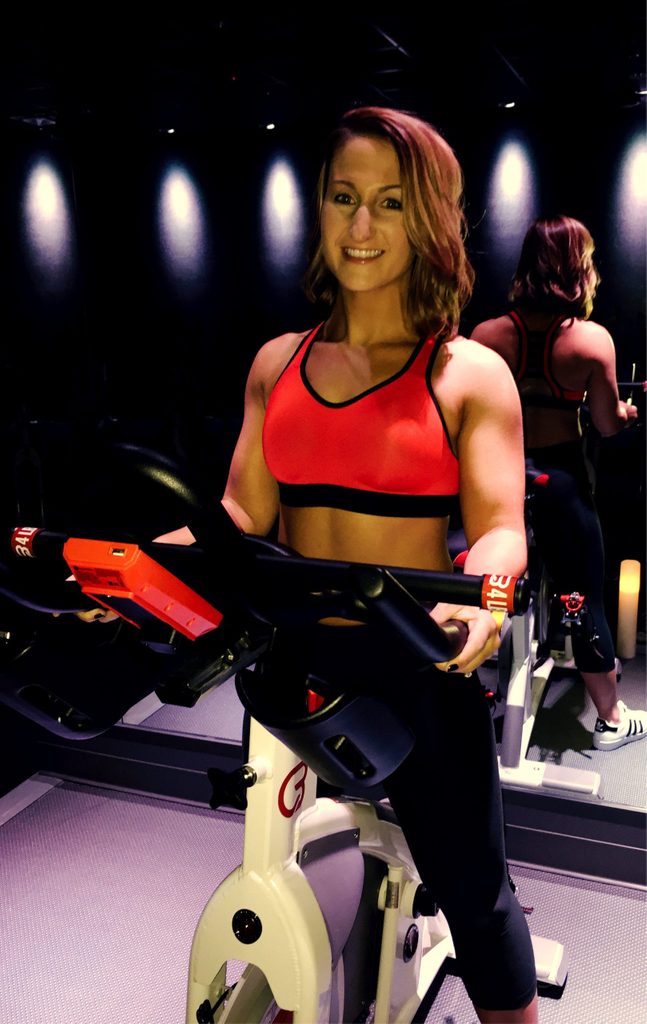
Find something you love
“If you’ve fallen off the fitness wagon, it’s important to get back to exercise by first engaging in an activity you enjoy. The best program out there is one you will actually commit to, thus lessening the chances of blowing off workouts or quitting altogether,” advises NASM-certified personal trainer Jessica Cifelli.
(Here are dance workouts for people who hate exercising.)
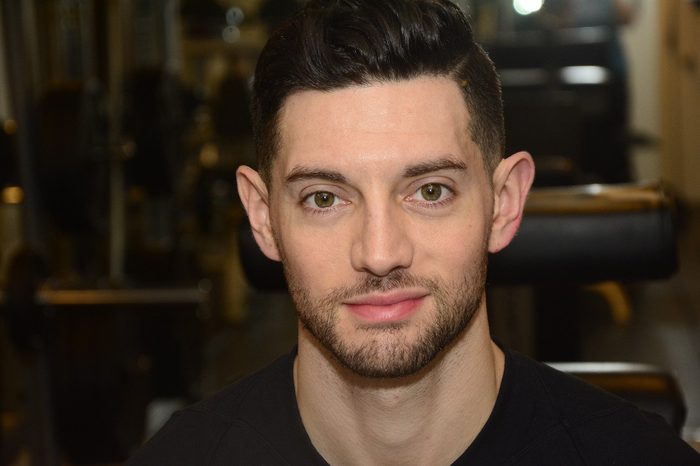
Don’t do too much
“When you’re getting back to a good routine, it’s important to pick only a few small, manageable habits to focus on. Most people lose momentum because they try to incorporate too much, too quickly. The trick is to choose habits that can be done consistently without burning you out,” advises Mike Clancy of Mike Clancy Training, New York City.
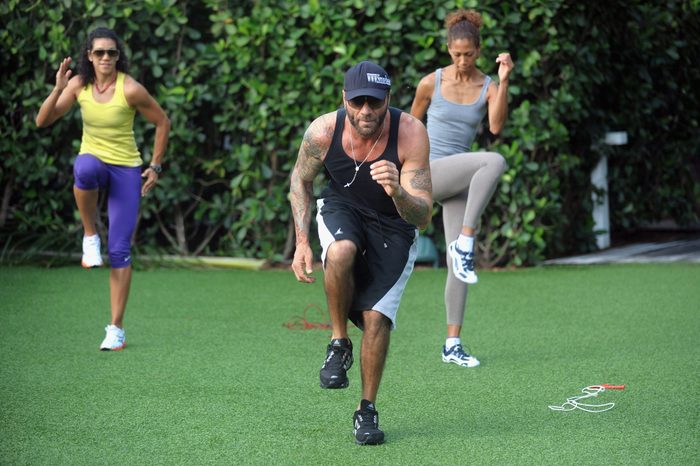
Sleep
“Sleep is important for repair, growth and combating stress. Look at catching up on some well-earned rest with daily naps and some good quality sleep,” says Carvalletti. Plus, science has found that catching up on sleep can actually help you lose weight—yet so many people are sleep-deprived.
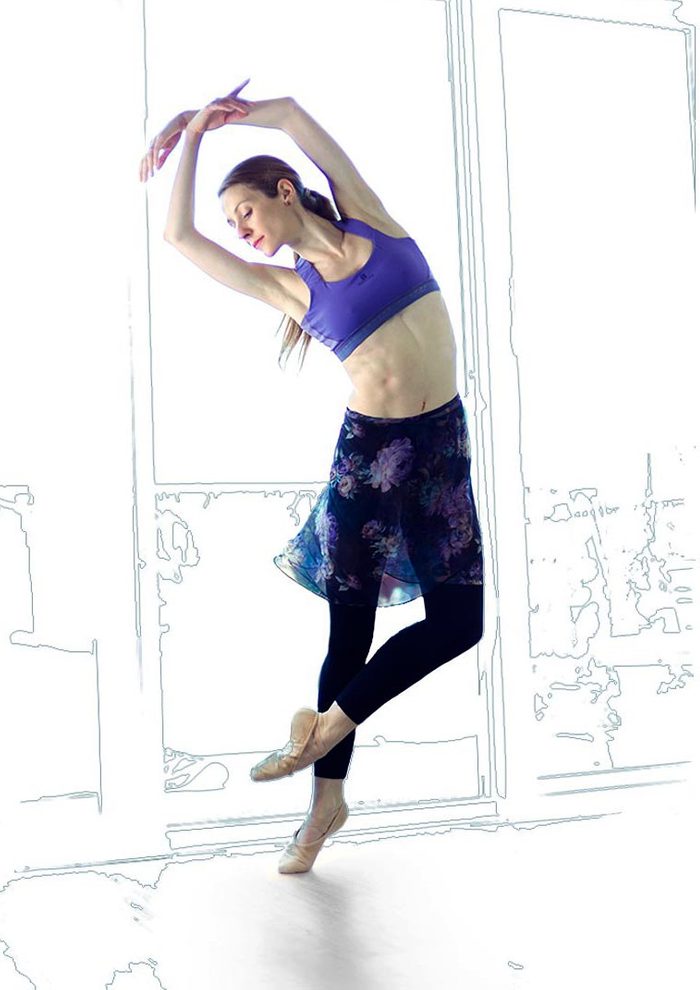
Be grateful, and don’t forget to thank your body
“Be proud of yourself and be proud of every little achievement you make,” says Lugoboni. “Every day don’t forget to give yourself a pat on the back and keep on having fun. Life is much better when we smile!”
Next, find the best fitness app for you.
